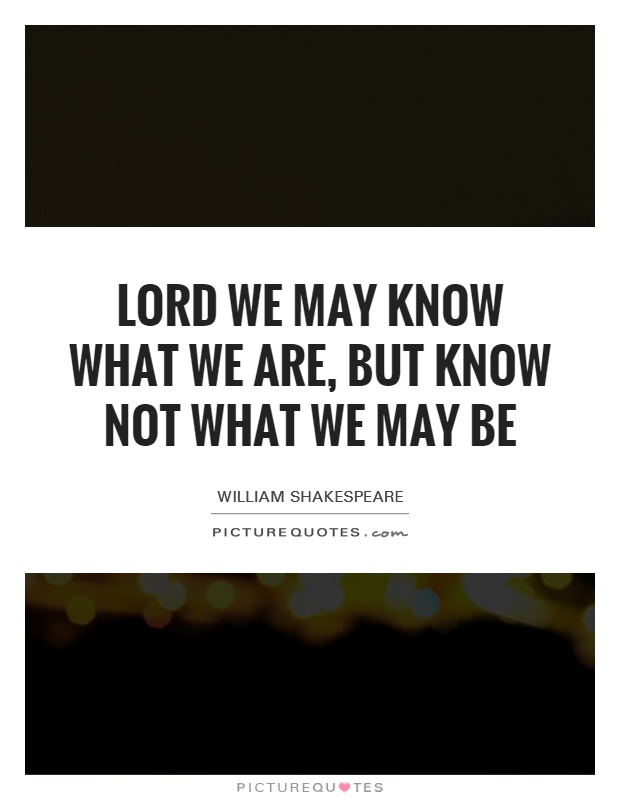
Lord we may know what we are, but know not what we may be

Lord we may know what we are, but know not what we may be
William Shakespeare's quote, "Lord we may know what we are, but know not what we may be," is a profound reflection on the uncertainty of human potential and the limitations of self-awareness. In many of his plays, Shakespeare explores the themes of identity, destiny, and the complexity of human nature, often challenging his characters to confront their own limitations and strive for greater self-awareness.One of the most famous examples of this theme can be found in Shakespeare's play "Hamlet." The titular character, Prince Hamlet, is a complex and introspective figure who grapples with questions of identity and purpose throughout the play. In his famous soliloquy, "To be or not to be," Hamlet reflects on the uncertainty of life and the unknown possibilities that lie ahead. He acknowledges that while he may have a sense of who he is in the present moment, he cannot predict what he may become in the future.
Similarly, in "Macbeth," Shakespeare explores the consequences of ambition and the dangers of unchecked desire. The character of Macbeth is driven by a desire for power and prestige, but as he descends into madness and paranoia, he loses sight of his true self and becomes consumed by his own ambition. In the end, Macbeth's tragic downfall serves as a cautionary tale about the dangers of not knowing one's own limitations and the potential consequences of ignoring one's true nature.
Shakespeare's quote also speaks to the idea of self-discovery and personal growth. Throughout his plays, characters are often forced to confront their own flaws and shortcomings in order to become the best versions of themselves. In "Othello," for example, the protagonist Othello grapples with feelings of jealousy and insecurity, ultimately leading to his downfall. However, through his struggles, Othello gains a deeper understanding of himself and the complexities of human nature.












 Friendship Quotes
Friendship Quotes Love Quotes
Love Quotes Life Quotes
Life Quotes Funny Quotes
Funny Quotes Motivational Quotes
Motivational Quotes Inspirational Quotes
Inspirational Quotes